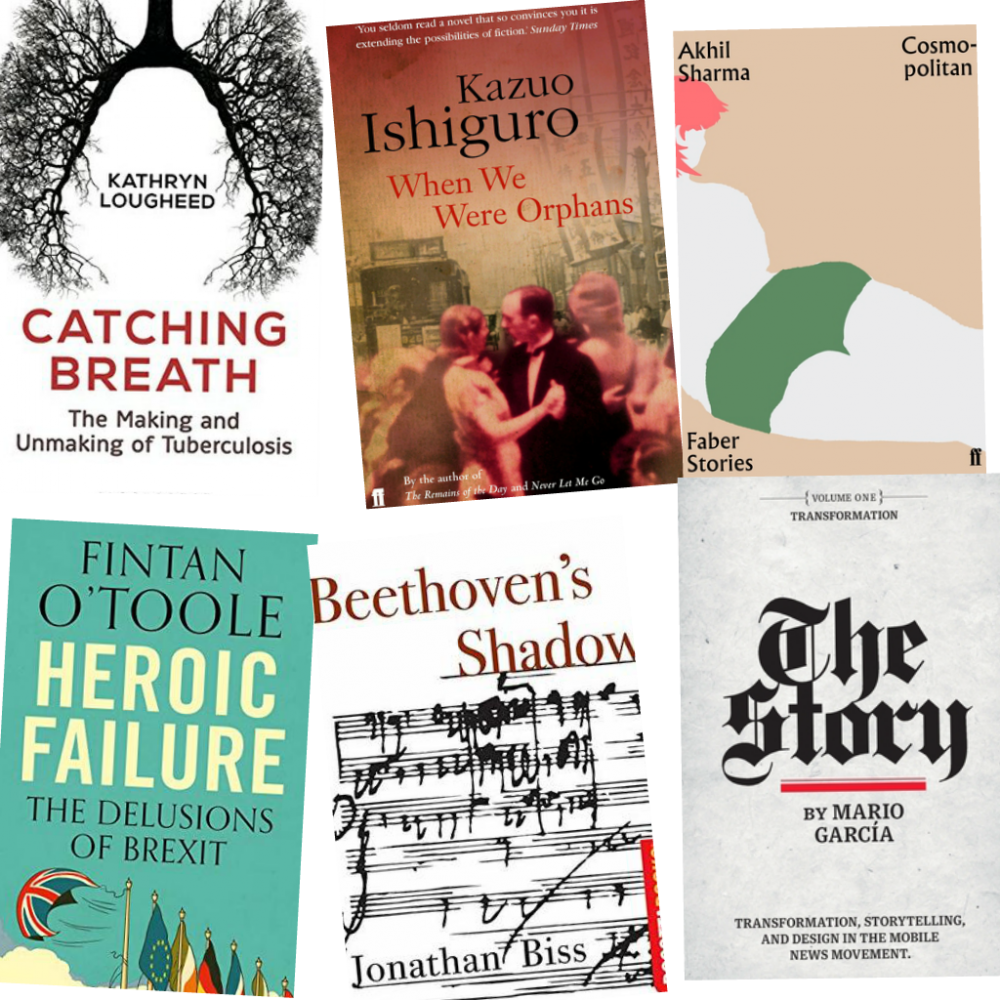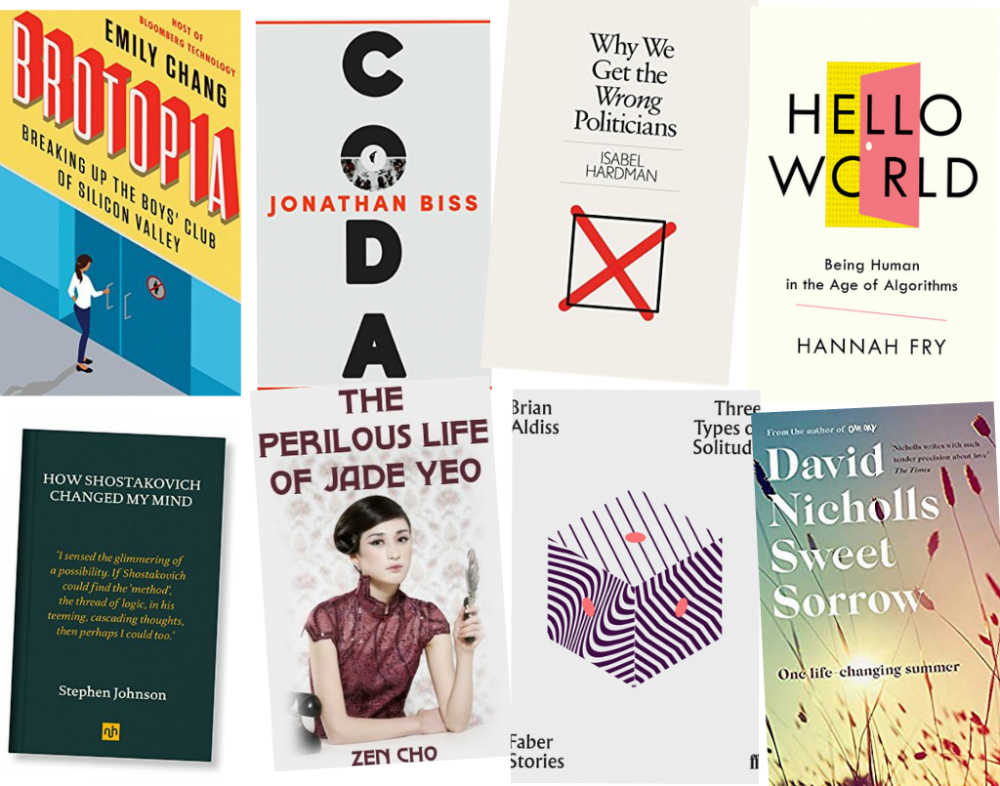What I’ve been reading this month

Fintan O’Toole’s book on Brexit, Heroic Failure, was exactly what I expected it to be as a reader of his frequent newspaper columns. He presented some interesting and well-argued perspectives on the drivers behind Brexit, including frequent references to 50 Shades of Grey. I didn’t find all of the arguments convincing, but I enjoyed O’Toole’s passionate argument and wit, and found myself seeing some aspects of the debate from entirely new perspectives.
In Catching Breath, Kathryn Lougheed taught me lots of bits and pieces about tuberculosis. Lougheed described the history of tuberculosis over millennia and made a case for it still being a pressing problem in the modern world, as I know only too well from my day job. Lougheed has the rare gift of being able to write well in a conversational tone, and with an added dash of humour, this whole text became thoroughly readable and engaging.
Kazuo Ishiguro is among my favourite authors, but I struggled to get on with When We Were Orphans. It was a sort of detective novel, where the protagonist goes off to solve the mystery of the disappearance of his own parents when he was a child. Perhaps I just wasn’t in the right frame of mind. I found the narrator thoroughly unlikable and a little irritating, which made the whole book difficult to enjoy.
I didn’t enjoy Jonathan Biss’s Beethoven’s Shadow quite as much as his other books because it seems clear that Biss wasn’t quite as passionate about Beethoven’s works as that of other composers he’s written about. But this was still an excellent essay. I particularly enjoyed his insights into the unexpected ways in which recordings of music have influenced the liver performance of classical music over the last century or so.
I’m not the intended audience for Mario García’s The Story: Volume I: Transformation, but I read it anyway. It was a hassle to buy because it seemed to be mobile only – but there now seems to be a print edition, so who knows what’s going on. It was a very short book in which García, a world-renowned newspaper designer, reflected on various projects he had worked on over many decades. It was interesting to read about his considerations when, for example, first introducing colour to newspapers, or first designing a newspaper for mobile phones. It left me feeling a bit tired and despondent about the future of news, as García’s vision is about as far from my own preference as can be: lots of “content management” and “melon slices” rather than properly absorbing narrative structures.
And I continued the Faber Stories series this month, with Akhil Sharma’s Cosmopolitan. This was a modern, calm, gently funny short story than was also utterly forgettable.
This post was filed under: What I've Been Reading, Akhil Sharma, Fintan O'Toole, Jonathan Biss, Kathryn Lougheed, Kazuo Ishiguro, Mario García.
